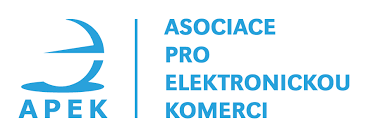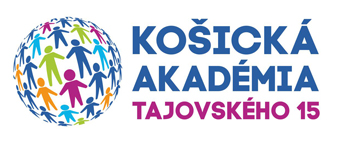What is the trend and priority when job hunting in software development and online marketing

What is the trend and priority when job hunting in software development and online marketing?
Fridays off, full remote, home office….those are frequent topics during every job interview in our company. How to combine this with the company operation, satisfied client and full service we are used to providing to our clients? On which positions is it viable and where it isn’t possible at all? What is important to make sure people could keep up the efficiency, home comfort and could separate work and private time? What is quite “normal” and considered as standard in job offers in this field?
Job interviews now, priorities and expectations of the employees
Current time in IT and marketing clearly plays into the hands of employees. There are very few experienced senior specialists, and it takes years to raise juniors. And it also depends on many factors whether it will work out. Online marketing as well as software development is very dynamic, there always news coming, and it is very demanding to follow all the changes and innovations.

Many people dream of a job in online marketing because it is trendy and it is said, there are money. Online marketing field seems logic and very simple area where everyone could make a career. For some with business mind it surely is, as marketing is pretty much undirect form of business. However, for many people it is a headache simply because they don’t get the ideas and it is very tiresome to come up with anything new.
On job interviews we often face many requirements from the side of employees. Candidates are often interested in flexible working hours, flexibility, full remote cooperation, or home office. At the same time very frequently, employees want to have the possibility to come to the office to socialize. That means that there should be always somebody sitting in the office because if I decide in the morning that I wan to come, there might not be anyone to talk to :-) Thus, many requirements are often in conflict
With every candidate we look for one important thing. They have to love the job and it should be also their hobby. Only then they are willing to learn, look for innovations and have ambitions to become better let alone the fact that we don’t have to push them into anything.

During lock down we tried full remote work in our team. In the given time it worked well because everyone was set to this mode, our clients, potential clients, the whole team. Last June we decided to welcome new team members – couple of juniors who we will teach and work with. Efficiency, reaction time and habits of new team members proved to be incompatible with full remote work. Base on data and our experience we know that cooperation between senior and junior colleagues in the office, for example in graphic designer role, is much more efficient and the output from the junior team member is much better than in full remote cooperation.
We do our job for the client. Besides the expertise and quality of course, the output has to be viable and saleable. If we wanted to have the option of full remote work with juniors, it would have to be paid piecework wage or freelance as it is common practice these days. And that is against our company policy.
What positions and personalities are compatible with full remote?
From our experience we know that there are positions where full remote work is not only possible but also more efficient with more contribution. Of course, it depends on the personality of the employee and their own work discipline.
For developers and encoders, it is very usual to work full remote or hybrid when they combine time spent in the office and on home office. In our team we work with many online tools enabling us to communicate about tasks, time management and task management from the clients. Even though the developers mostly work full remote it is still efficient to meet in the office at least once a month to discuss long-term work and projects.
Communication between the team and team member outside the office is more complicated. It is necessary to focus on perfect and precise assignment and definition. This role is fulfilled by project manager who is irreplaceable from this point of view. Within this role full remote is practically impossible because client communication plays crucial role. The company can not focus only on the clients who are willing to meet only online.

It might seem that the current trend is “the supplier chooses their customers, it is an equal partner relation.”, but even when the supplier makes a choice it is still valid “our customer is our master” or “If you won’t do it, someone else will happily do it”. According to or internal statistics we have clients who want to meet with us and like to see us in person. During face-to-face meetings we always do a lot of work and come up with everything they need. We define everything in detail and save their time. They don’t have to create the assignment and send it to us. We draw them to the action and work on it together. It is not only efficient, but such a kind of cooperation usually bring long-term relationship.
Flexible working hours, sliding work hours, what does it mean?
Correct definition of these terms and the idea of the employees about functioning in such working mode often vary.
Labor code says:
„3.3 Flexible working hours (§ 85) Flexible working hours consist of a combination of basic and optional periods of working time, the beginning and end of which are determined by the employer. The employee shall be required to work basic working hours in accordance with a predetermined work schedule.“
From this it can be concluded that if the daily working time is 8 hours + 30 minutes lunch break and the time spent in the office is set to 10:00 - 16:00, therefore the employee should work two more hours at any time during the day. However, it is often understood that I only work from 10:00 to 16:00 and then I am available, but only when I am at the computer.
We do not work in this mode, and we are not capable of it. However, that doesn’t mean we have dissatisfied employees. Of course, for many people this is unacceptable because they have different priorities and expectations. Our experience and statistics show that it is only about the habit, need, ambitions and about whether employees love their job or it is only the source of income.
If a job is also a hobby, it is possible to combine it with family and private life, hobbies and develop within self-education.

Satisfied client and their client expectations from the supplier in our field
How to combine need and requirements of potential employees and at the same time satisfaction of the client who is expecting full service and fulfilled requirement because they need it as soon as possible? How often is it possible to tell the client “We are sorry, but the employee has flexible working hours and isn’t by the computer, we will let you know”
Unfortunately the statistics show that there are only a few customers willing to accept this and we haven’t met them in the last 15 years. We only have such clients who expect full service, face to face meetings, reaction time “in no time”. We are able to deliver all this to our clients and that is why we have long-term relationships with them.
Where is the optimal midpoint of the relations between employer, employees and the client?
From our experience we know that it is about the people. If employees love their job, they don’t measure the extra time which they have to invest as a “juniors”. They are aware that their investment into self-education will pay off later financially as well as in their efficiency. Employees acquire the best experience from the projects, situations, and client interactions or from their team. Only that can move them forward. Without time investment and with contactless remote work it is difficult and takes much longer. Sometimes it doesn’t even happen because one or the other party lose their patience.
For the client, job done by junior is usually unacceptable. It takes longer, includes higher mistake rate and in the end it is much more expensive than work from a senior. “Juniors”, however, don’t realize this. Even there are some exceptions though. Bringing up a “junior” is a cost without any guarantee for the employer. And of course, the investment may not pay off at all, in case the “junior” isn’t bound by a contract for a subsequent period of time in order to pay off the employer’s investment.



.png)








